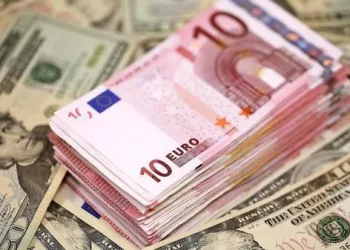For instance, a stronger pound against the lira means that British exporters will face challenges as their goods become relatively more expensive in the Turkish market. On the other hand, it could be beneficial for British tourists traveling to Turkey as their pounds can buy more lira, making their trips more affordable. Similarly, Turkish businesses exporting to the UK may find increased opportunities when the lira weakens against the pound. Thus, understanding the GBP/TRY exchange rate is crucial for various economic actors.
The Basics of Exchange Rate
Definition of Exchange Rate
An exchange rate is the value of one currency expressed in terms of another currency. In the case of the pound – to – lira exchange rate, it indicates how many Turkish lira one can obtain for one British pound. This rate is not fixed; rather, it is in a constant state of flux due to the dynamic nature of the foreign exchange market.
Types of Exchange Rate Systems
There are different exchange rate systems globally. The most common ones include fixed, floating, and managed – float systems. Turkey and the UK both operate under a floating exchange rate regime. In a floating exchange rate system, the value of a currency is determined by the forces of supply and demand in the foreign exchange market. This means that the GBP/TRY exchange rate is constantly adjusted based on the market’s perception of the economic health of both countries, as well as other relevant factors such as interest rates, inflation, and political stability.
Historical Overview of GBP/TRY Exchange Rate
Long – Term Trends
Over the past decade, the GBP/TRY exchange rate has witnessed significant fluctuations. In the early stages, due to Turkey’s relatively high economic growth rate and increasing foreign investment, the lira was relatively stable against the pound. However, in recent years, a combination of factors such as high inflation, political instability, and a current account deficit in Turkey has led to a depreciation of the lira against the pound.
Key Events and Their Impact
Certain events have had a profound impact on the GBP/TRY exchange rate. The Brexit referendum in the UK in 2016 was one such event. After the referendum, the pound faced significant volatility. Uncertainty regarding the UK’s future trade relations with the European Union and the global market led to fluctuations in the value of the pound. This, in turn, affected the GBP/TRY exchange rate.
In Turkey, political unrest, changes in government policies, and central bank interventions have also played a crucial role in the movement of the lira against the pound. For instance, when the Turkish central bank decided to lower interest rates to stimulate the economy, it often led to a depreciation of the lira.
Factors Influencing the GBP/TRY Exchange Rate
Economic Indicators
The economic growth rate of both the UK and Turkey is a significant factor. A higher GDP growth rate in the UK relative to Turkey may lead to an appreciation of the pound against the lira. This is because a growing economy attracts more foreign investment, increasing the demand for the domestic currency. Conversely, if Turkey experiences robust economic growth, it may strengthen the lira against the pound.
Inflation has a direct impact on the exchange rate. High inflation in Turkey erodes the purchasing power of the lira, making it less attractive to investors. As a result, the lira may depreciate against the pound. In the UK, if inflation rises above the Bank of England’s target, it may prompt the central bank to raise interest rates, which could strengthen the pound.
Interest rate differentials between the two countries play a crucial role. Higher interest rates in the UK relative to Turkey can attract foreign investors seeking better returns. This increased demand for the pound can lead to its appreciation against the lira. Similarly, if Turkey raises its interest rates significantly.
Political and Geopolitical Factors
Domestic Politics
Political stability in both countries is essential. In the UK, general elections, changes in government policies, and Brexit – related developments can impact the pound. In Turkey, political unrest, changes in government, and geopolitical tensions in the region can lead to uncertainty, causing the lira to depreciate.
Conclusion
The exchange rate between the British pound and the Turkish lira is a complex and dynamic phenomenon. It is influenced by a wide range of economic, political, and market – related factors. Understanding these factors is crucial for businesses engaged in international trade, investors looking to diversify their portfolios, and individuals planning to travel between the two countries.The historical trends of the GBP/TRY exchange rate show that it has been subject to significant fluctuations over the years. Economic indicators such as GDP growth, inflation, and interest rates, as well as political and geopolitical factors, play a crucial role in determining the direction of the exchange rate. Market sentiment and speculation also contribute to the short – term volatility of the GBP/TRY pair.
Related topics:























